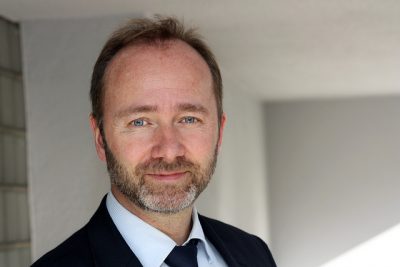Reaction was swift this week when news broke that Labour Party politician Trond Giske, who faces multiple charges of sexual harassment, was already making a comeback on the national political stage. It’s also mostly business as usual for others caught in the “MeToo” campaign against harassment this past winter.

Giske was welcomed as a hometown hero when he made his first public appearance in February, back where he started in Trøndelag. Last week he represented Labour in a nationally televised debate on church policy, appearing along with Kjell Ingolf Ropstad of the Christian Democrats and Jon Helgheim of the Progress Party on state broadcaster NRK.
“I was surprised that Giske is already doing this now,” Tone Sofie Aglen, political commentator for Trondheim newspaper Adressavisen, told news bureu NTB. “I had thought he would keep a low public profile and avoid media attention.”
Giske was stripped of all his official roles in the Labour Party, including deputy leader, after a series of complaints were lodged against him by young women both in and out of the party. They complained of unwanted attention extending back several years, also during Giske’s time as a minister in the former Labour-led left-center government coalition. Giske issued a public apology, claimed he had not been sufficiently conscious of his role as a government minister, and didn’t mean to take advantage of star-struck young party members.
‘Important voice’
He has only taken part in one debate in Parliament (where he was able to retain his seat as an elected official) since he returned from an extended period of sick leave allegedly brought on by the strain of the accusations against him. Now, however, he seems to be trying to mount a return to the life he led as a top national politician.
He will, for example, be speaking on Norway’s national Labour Day holiday on May 1, holding the main public address in the industrial community of Verdal in Trøndelag. He is welcome there: “Trond Giske is an important voice for the district on the left side of Norwegian politics, and no one can take away from him the position as one of the best analysts of society the labour movement has,” claimed Arild Kvernmo Pederson, group leader of the Labour Party’s chapter in Verdal. “Trond has built up a very strong position within Norwegian trade unions, and his ideological effect has made him very respected within Verdal’s Labour Party and unions in Verdal.”
Easter party problem
Critics sounded off, however, when it recently emerged that Giske also had attended a party attended by many members of Labour’s youth organization AUF, and at which lots of alcohol was served. Drunkenness has been behind many of the complaints filed over sexual harassment and assaults, with the Conservatives even banning late-night parties at their recent national meeting. Labour Party officials have also ordered new restrictions on alcohol at party events, especially those involving AUF members.
Yet the drinks reportedly flowed at the Løvebakken AUF party, which began in a dining room at the Parliament itself and continued at the Oslo bar Justisen near Youngstorget. Newspaper VG reported that Giske had been invited along with all former leaders of AUF, and he accepted.
“I think that’s strange, pure and simple,” Anna-Sabina Soggiu of Labour’s Oslo chapter told VG. NRK also reported that “several others” also reacted negatively to Giske’s presence, with one calling it “an insult to all those who filed complaints” against him.
Labour Party Secretary Kjersti Stenseng, who has long been a Giske supporter, had no comment while AUF leder Mani Hussaini said he had “no problem” with Giske’s attendance. “The complaints have been handled and Trond has taken the consequences of them” Hussaini told VG. Giske himself wouldn’t comment at all.
‘Not good’
Labour Party veteran Grethe Guldbransen Fossum certainly did: “It’s not good. He shouldn’t have attended. I think he should keep away (from such events) and rather be a bit more humble after everything that’s happened.”
Anders Todal Jensen, a political scientist and election researcher, said he thinks Giske is keen to come in out of the cold. “He clearly wants to be ‘normalized’ as quickly as possible,” Jensen told VG. “His relations with AUF have historically been good, so it’s not surprising he wants contact again. At the same time, the scandals around him had a lot to do with big age differences, so his presence can be extra difficult in an AUF context.”
Kristian Tonning Riise, the former head of the Conservative Party’s youth group, wasn’t even allowed to attend the party’s recent annual meeting, and is banned from other party events as well. Ulf Leirstein of the Progress Party, however, is back at work as a Member of Parliament and and seems forgiven for his attempts to entice a teenage party member into a sexual relationship and even three-way sex with another party member.
newsinenglish.no/Nina Berglund

